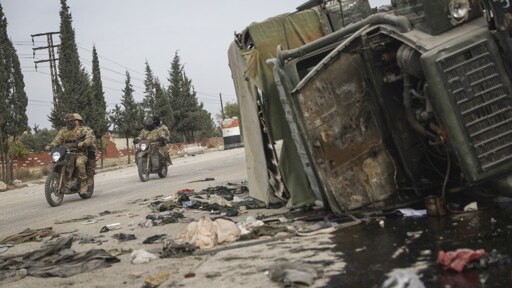Opposition fighters are closing in on Syria’s capital in a swiftly developing crisis that has taken much of the world by surprise. Syria’s army has abandoned key cities with little resistance. Nervous residents in Damascus describe security forces on the streets. The state news agency has been forced to deny rumors that President Bashar Assad has left the country.
Who are these opposition fighters? If they enter Damascus after taking some of Syria’s largest cities, what then? Here’s a look at the stunning reversal of fortune for Assad and his government in just the past 10 days, and what might lie ahead as Syria’s 13-year civil war reignites.
The aim? Overthrow the government
This is the first time that opposition forces have reached the outskirts of the Syrian capital since 2018, when the country’s troops recaptured the area following a yearslong siege.
The approaching fighters are led by the most powerful insurgent group in Syria, Hayat Tahrir al-Sham, or HTS, along with an umbrella group of Turkish-backed Syrian militias called the Syrian National Army. Both have been entrenched in the northwest. They launched the shock offensive on Nov. 27 with gunmen capturing Aleppo, Syria’s largest city, and the central city of Hama, the fourth largest.
The HTS has its origins in al-Qaida and is considered a terrorist organization by the U.S. and the United Nations. But the group said in recent years it cut ties with al-Qaida, and experts say HTS has sought to remake itself in recent years by focusing on promoting civilian government in their territory as well as military action.
HTS leader Abu Mohammed al-Golani told CNN in an exclusive interview Thursday from Syria that the aim of the offensive is to overthrow Assad’s government.
Possible rifts ahead
The HTS and Syrian National Army have been allies at times and rivals at times, and their aims might diverge.
The Turkish-backed militias also have an interest in creating a buffer zone near the Turkish border to keep away Kurdish militants at odds with Ankara. Turkey has been a main backer of the fighters seeking to overthrow Assad but more recently has urged reconciliation, and Turkish officials have strongly rejected claims of any involvement in the current offensive.
Whether the HTS and the Syrian National Army will work together if they succeed in overthrowing Assad or turn on each other again is a major question.



Assad is not a nice leader, that much is clear. Will a organization which has its origins in al-Qaida be a better leader for the people of Syria? I have my doubts.
Not nice is an understatement. The guy is a butcher.
The Syrian Free Army [now attacking Damascus] is not affiliated with IS, and in fact has been fighting against IS.
Maybe you think they are irrelevant?
What? I didn’t mention IS.
You said “origins in al-Qaida”–the SFA doesn’t fit that bill.
I copy and pasted it from above:
You know there are several groups together overthrowing Assad, not only the SFA. Now that Assad is gone they will need to fight is out who will be the one leading.